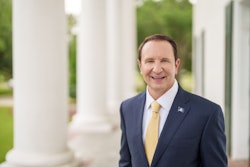Jacqueline Charles has been selected to receive the 2024 Lovejoy Award for Courage in Journalism from Colby College.
 Jacqueline CharlesMiami Herald
Jacqueline CharlesMiami Herald
The Lovejoy Award for Courage in Journalism is named for Elijah Parish Lovejoy, Colby’s 1826 valedictorian and a crusading abolitionist editor murdered by a mob in 1837 for his impassioned anti-slavery editorials.
“Today, Haiti is a nation under siege, where journalists are forced to flee after enduring shootings or kidnappings, and where the act of self-censorship no longer offers protection,” said Charles. “Yet in the face of this, some of us continue to tell the story of the pain of a people forgotten and often dismissed.”
Colby President Dr. David A. Greene lauded Charles’ courage and compassion in covering the turmoil in Haiti and ensuring its effects on the nation’s people remain visible to the world.
“Ms. Charles has spent her career revealing injustice and threats to humanity, just as Elijah Parish Lovejoy did,” said Greene.
Charles, a recipient of the Distinguished Alumna Award from the University of Carolina at Chapel Hill, serves on its Hussman School of Journalism and Media’s Board of Advisers. The mentor to young journalists is also a founding member of the Carolina Association of Black Journalists, the National Association of Black Journalists’ student chapter.
Charles plans to accept the honor Sept. 20 at Colby’s Gordon Center for Creative and Performing Arts on behalf of fellow journalists in Haiti who daily, carry on Lovejoy’s commitment to press freedom.
“This is an incredible honor, and I’m deeply humbled,” said Charles. “I urge journalists everywhere to stand in solidarity with Haiti to make sure that we tell the story of a nation besieged by conflict, isolation, and disaster — natural and man-made — since its founding more than 200 years ago by former slaves. But it is also a country of great beauty and potential, and where its citizens and far-flung diaspora continue to dream and hope for a brighter future.”


















